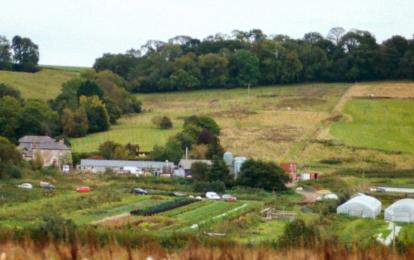ORFC 2026 8 – 9 Jan
ORFC 2026 8 – 9 Jan
The shift away from area-based agricultural subsidies has been a welcome transition to those who recognise the flaws in a system which has essentially rewarded farmers and landowners for owning large amounts of land. As we embark on new farming subsidy policies in Wales, Scotland, Ireland and England, which will instead incentivise farmers to adopt more sustainable farming practices, the question remains of where small farms - including market gardens, crofts, and urban and peri-urban…

Hemp could become a key element of regenerative farming. There are thousands of potential uses for the fibre, woody core and seeds. It sequesters carbon faster than any other crop, and this carbon can be locked up, for example, into innovative construction products.
Centred on research carried out by the Rare Breeds Survival Trust (RBST), the native livestock conservation charity, the session will explore the impact of sheep farming on our climate, and then consider the practical steps farmers can take to adapt their systems to minimise that impact, particularly through selecting appropriate breeds, modifying diets, improving welfare and altering breeding practices. Speakers include experts from RBST’s Conservation Team.
As food insecurity, climate change and biodiversity loss pressurise food production, what can farmers do to help shape a food system that nourishes people, restores our environment and adapts to changing weather? This discussion asks how farmers can contribute to meaningful food system change at a farm level.
The Kindling Trust is the latest organisation to run a community shares offer to attract investment to purchase a farm. The campaign surpassed all expectations, raising over a million pounds with the support of over 620 investors, double the original target.
When seeds are sown, gifted or packed on journeys, they carry stories. Stories of where they come from, whose hands saved them, which meals were cooked from their bounty and in which soil they were sown. In this storytelling circle hosted by the Seed Sovereignty Programme, we will hear from growers across the British Isles about the seeds which matter most to them.
The garden is often seen as a refuge, a place to forget worldly cares, removed from the real life that lies outside. But when we get our hands in the earth we connect with the cycle of life in nature, through which destruction and decay are followed by regrowth and renewal. Sue Stuart-Smith and Jonny Bruce will discuss how gardening can answer deep existential needs of self and society.
In order to address the climate and nature crises, we need to make better use of our land, and the agricultural sector has a major role to play. Making the best use of our land requires informed decision-making around the trade-offs, benefits and economic viability of different land uses in the context of wider UK landscapes.
In Eating to Extinction, Dan Saladino contends that by any measure hunting and gathering has been our most successful lifestyle to date. Whilst it is rare to find people existing entirely by this means today, the Hadza tribe is one such example and amongst them modern diseases are almost nonexistent. Herbalist Mo Wilde lived for a year entirely on free wild food foraged in Scotland, documenting her findings in The Wilderness Cure. Defra recently consulted…